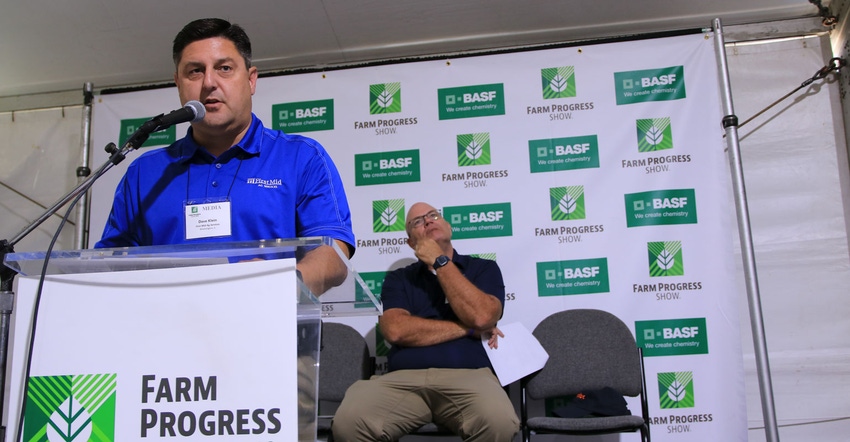
A survey of Illinois farm mangers, appraisers and real estate agents recently found farmland that’s “average,” “good” or “excellent” quality held value over the past six months, with less than a 1% change in the average sale price.
However, farmland averaging below 150 bushels per acre of corn with a soil productivity index under 100 is selling for about 4.5% less than it did in January, when the Illinois Society of Professional Farm Managers and Rural Appraisers last released a survey of its members. On average, “fair” quality land in Illinois is now worth $4,898, while excellent land is only 0.9% behind where it was — now weighing in at $10,497.
“It stands to reason that people might be willing to say, at this point, ‘I’ll still pay for new ground, but if it’s poor ground, I’ll let somebody else offer for now.’ That’s understandable,” says David Klein, chairman of the ISPFMRA farmland values survey. He’s also the vice president and managing broker of First Mid Ag Services.
“With everything that went on in the spring, it’s been a challenging year; but we certainly feel good about the fact that land values are still mostly steady for plan B,” Klein adds, noting most farmland in Illinois is rated average, good or excellent.
Having a reliable value for that land will help Illinois landowners raise money from a sale when the time comes. The survey shows 63% of all farmland sales were sold by an estate, while 14% were sold by farmers. According to the survey, 64% of buyers were farmers.
While concern over an incoming recession has sent out “sell signals” and caused the stock market to seesaw, Klein says it’s important for landowners not to overreact. Long-term interest rates going down, farmland’s inflation hedging capabilities and grain prices potentially increasing due to the weather’s impact on the growing season will help hold land values in the future.
“Twenty percent of our respondents did think we could have an increased supply of land this fall, and if that comes to fruition, I’d be a bit more cautious in certain areas,” Klein says, noting a surge in listings could drive prices lower in localized markets.
Forty-four percent of survey respondents expect farmland prices to remain the same in their areas, while 50% expect farmland prices to decrease by less than 3%. Four percent expect a larger decrease, and only 2% anticipate an increase.
Looking at 2020 rents
Farm managers responding to the survey reported 31% of their farms had some prevented planting claims. On those farms, 15% of corn acres and 5% of soybean acres were prevent plant. This, along with a poor outlook for soybean profits, is pushing cash rents on farmland down, while potential for resolving the China trade dispute and higher-than-expected returns on corn push back, survey respondents report.
“Our survey would say our rents, just like our land prices, are going to be relatively stable to maybe down a little bit,” says Gary Schnitkey, the University of Illinois agricultural economist who conducts the biannual survey.
Even with respondents averaging $4.05 for projected corn prices following the 2019 harvest, rents are expected to decline slightly for all four qualities of land in Illinois. On excellent farmland, where average yields weigh in at over 190 bushels of corn per acre, rents for 2020 are expected to average $298, a $4 drop from 2019 cash rents.
Survey respondents expect an increase in the percentage of cash and variable cash rent leases, while share rents are expected to continue to be phased out.
About the Author(s)
You May Also Like




